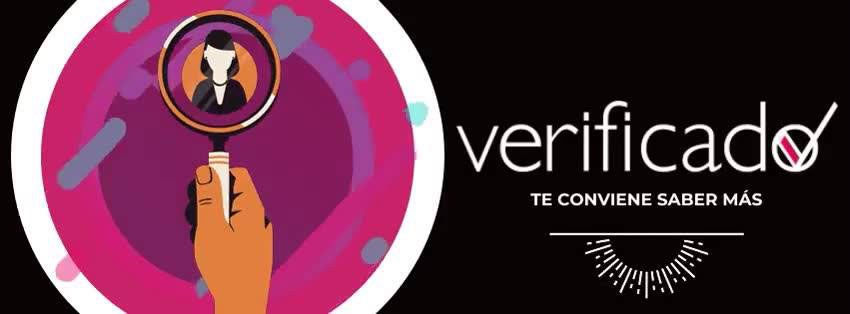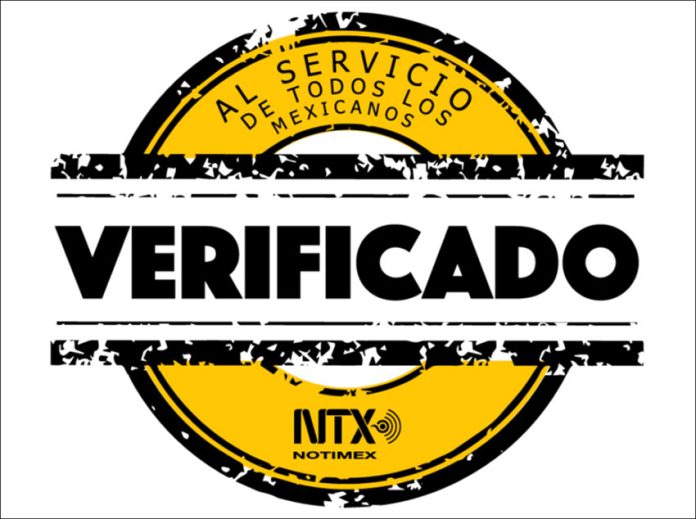On June 28, the Mexican newswire service Notimex, a daily service run by the staff of Mexican President Andrés Manuel López Obrador, launched its own fact-checking unit.
According to Notimex’s inaugural tweet about the platform, the project is designed to debunk false news on social media as well as to fact-check dubious content published by traditional media outlets, such as newspapers, radios and TV channels.
Notimex decided to baptize its fact-checking unit “Verificado Notimex,” though its yellow and black logo places emphasis on the first of those two words.
For those familiar with previous fact-checking initiatives in Mexico, this might ring a bell: in 2018, over 60 fact-checking platforms and media outlets in the country formed a coalition to fight disinformation throughout that year’s presidential campaign. The nationally popular initiative, called “Verificado,” has since been awarded many times for its excellent work.
In addition to this, a regional fact-checking initiative in the northern state of Monterrey launched in July 2017 had registered “VerificadoMX” as its brand in 2018. According to founder Daniela Mendoza, the organization is now ready to go to court against the Mexican state to protect the name.

“We have the right to do something and there are some people offering us support to go forward,” said Mendoza in a WhatsApp conversation. “We are four journalists working in the north of Mexico with limited resources, but we want to go against the government even though we know our chances aren’t great.”
For several months, President López Obrador has spent two hours every morning talking to Mexicans live on social media. Every day, from 7:00am to 8:30am, he gives long speeches about his government and answers a handful of questions from selected journalists. VerificadoMX follows him closely and has concluded that about 50% of what he says in his Youtube appearances is false.
On July 2, López Obrador celebrated his first year in power with a long speech at a live morning event. Animal Político, one of the International Fact-Checking Network’s signatories in Mexico, published a detailed article pointing out six false claims he made throughout his speech.
Throughout the course of 90 minutes, the president had twisted information about employment, gas prices and foreign investments, to name a few. By comparing the president’s comments to official data, Animal Político was able to point out to Mexican audiences exactly where and how López Obrador had manipulated his facts.
“Verificado Notimex,” on the other hand, didn’t publish a word about that speech. On July 3, all it had to offer on its website were four recent debunks they had done with social media content — none of which was related to López Obrador and his first year in power.
“This is something predictable. Notimex’s director is chosen by the president and ratified by the Congress,” said Martin Vargas, editor-in-chief of Spondeo Media, another fact-checking initiative in Mexico. “But if Notimex really wants to enter the fact-checking world, it should be aware of the IFCN’s Code of Principles, for example, and have more editorial freedom to avoid conflict of interest.”
The debate about who owns the “Verificado” brand is getting bigger every day. On July 2, Sanjuana Martínez, head of Notimex, posted on her personal Twitter account a picture showing what she pledged to be a registered trademark document. Then she deleted it.
But the Verificado team kept a copy and, according to them, it showed a registration demand. Not a concession.
“We have our trademark. We reacted on social media and people started attacking us, accusing us of lying and of trying to keep a Spanish word for ourselves,” said Mendonza. “But it is our brand and it was assigned to us by the National Intellectual Property Institute last July.”
López Obrador isn’t the only politician taking advantage of the names of established fact-checking outlets.
In October 2017, in the Czech Republic, prime ministerial candidate Andrej Babiš created his own “fact verification” project named Můj Demagog, which translates to “My Demagog.” The IFCN’s verified member in the country is Demagog.cz and is based in Prague.
“As for today, the page is still active,” wrote Ivana Procházková, an expert from Demagog, in an email do the IFCN. “However since the launching of the website, soon before parliamentary elections in 2017, no new claims or any update appeared. So I guess the purpose was mostly to give the impression that he explained all the allegations made towards him in a complex, serious and reliable manner.”
Cristina Tardáguila is the founder and director of Agência Lupa, the first fact-checking newswire in Brazil. This piece first appeared on Poynter.org.
